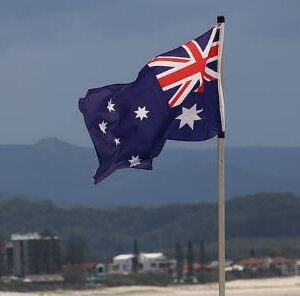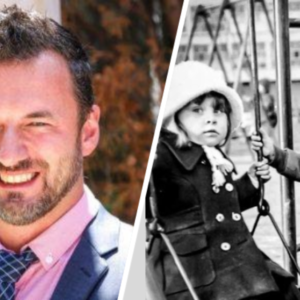The stigmatization of Australia Croatians in the 1960s and 1970s as ‘Fascists’ and as objects of suspicion is a reminder of just how dangerous and damaging politicising ethnic identities can be.
Croatians in Australia have the unfortunate distinction of having been the first post-war Australian migrant community to be systematically attacked and delegitimised by a sizeable portion of the political establishment.
Doubtless, there were legitimate questions to he asked about the activities of nationalist Croatians in Australia and abroad. But there was also a strain of illegitimate, extreme, and highly targeted attacks against the Croatian ethnic identity.
In September 1964, speaking in the Australian parliament, Gogh Whitlam, deputy Labor Party leader and ultimately the longest serving Australian Labor Leader, torched the Croatian ethnic identity, arguing that the very idea of distinguishing “Croatian” people from Yugoslavians was a fascist construct.
“The term ‘Croat’ is a neologism which arose during the [Second World] war. It was used during the war by quislings and by a puppet state set up by Italy and Germany at that time,” he told MPs.
“There should be no instructive sympathy in this House or in this country for the persons who describe themselves as Croats, who were supporters of [Croatian fascist leader Ante] Pavelic, who displayed his flag and who used his emblems.”
These shocking comments were part of a broader rift between Croatians and the political Left that have characterised much of the Croatian community’s experience in Australia.
When considering the historical and present issues within the Croatian diaspora in Australia, the origin of the conflict between Croatians and the Australian political Left, and how quickly it denigrated into antipathy, need to be remembered.
We need to do this to understand decades of scepticism about Croatian migrants in Australia that continue periodically to surface.
Examining this history reveals the inherent danger of weaponizing any ethnic group as a kind of tool against political rivals.
The experience of the Croatian diaspora in Australia has been fundamentally shaped by the way Croatians became a Cold War political football between Australia’s major parties, and when the Left-wing Labor Party, then in opposition, decided to use allegations of Croatian political extremism as a cudgel against the Right-wing Liberal/Country Party government.
Croatians were the perfect target for Australian Left-wingers from the 1960s onwards, because they were anti-communist and Catholic, and so perceived as opposed to the political interests of the Australian Left. They had little political capital, almost no representation in elected office or organised labour and were very much seen as “new Australians”.
At the time, the Labor Party, which had been out of power for more than a decade by the 1960s, was suspicious of and angered by the government’s spying on Left-wing movements in Australia. The Labor Party and the political Left more broadly felt that they were being unfairly targeted by security agencies and suspected that the government was applying unfair standards.
Shocking stories from 1963 onwards that claimed Croatians in Australia had formed militant organisations, endorsed violence, and were travelling to Europe with the intention to subvert the Yugoslav state fitted perfectly into a pre-existing Left-wing beliefs that the Australian government was turning a blind eye to right-wing extremism.
These stories vindicated every Left-wing suspicion that the government was unfair to their own political movement and tacitly supported anti-communist extremists.
The interest among influential elements of the Labor Party and its affiliated media in assessing this information in a sober fashion was limited.
Questions about the extent to which Croatian nationalist goals were in conflict with Australian law, what Croatians nationalists actually wanted and whether there was any unique ideological extremism that needed to be addressed – and what, if anything, could be done – were not even asked.
Croatians seemed to represent the Right-wing extremists that the Labor party believed existed and thus were to be weaponized against the government
Croatians went from an unassuming part of the post-war migration wave to the object of political ire. Within months the Labor Party had turned the issue of Croatian nationalism in Australia into ethnic-based attacks and evidence-free rhetoric.
Whitlam’s statements were some of the most egregious, but his political allies, including Jim Cairns, future deputy Prime Minister, were just as enthusiastic. Whatever legitimate inquiries could have been made into the nature of Croatian nationalism in Australia were now sullied by political partisanship.
The ascendant Whitlam and his political allies pushed Croatian Australians ever further from the Labor Party and ever closer to the Liberal/Country Party government, which immediately decried Whitlam’s characterisation. But Whitlam never demurred from this path and continued to rhetorically target Croatians.
Throughout the late 1960s and 1970s, the Australian Left continued its campaign of characterising Croatians as Fascists and terrorists, which the Australian Right doggedly disputed.
Whilst Labor also accused other Eastern and Southern European migrant groups of being right-wing extremists, something that Whitlam would later apply also to Vietnamese migrants, the Croatians received the harshest attack.
Today the issue of Croatian nationalism has faded from the Australian public imagination. But even after the end of the Cold War and disintegration of Yugoslavia, the legacy of what happened in the 1960s remains.
In recent years, Australian journalists like Hamish McDonald and Gerard Henderson have highlighted that the politicisation of Croatians had real effects. Court cases involving allegations of Croatian terrorism, such as the trial of the “Croatian Six” [six men jailed in 1981 over an alleged conspiracy to bomb targets in Sydney] continue to be scrutinised as miscarriages of justice.
What happened to Australia Croatians starting in the 1960s is a reminder of how dangerous and damaging politicising ethnic identities can be.
It provides a cautionary tale for Australian, and indeed for all policymakers. Discrediting ethnic identities as a means to harm political rivals has long-term political and human consequences. Crossing the line from legitimate inquiries into the actions of Croatian nationalists in Australia to publicly decrying the Croatian ethnic identity itself as an illegitimate, inherently extremist, ethnic identification created pain that lasted for decades.
———————————
Alexander Lee is a PhD candidate at the Australian National University’s National Security College. Twitter: @alex10lee
The opinions expressed are those of the author and do not necessarily reflect the views of BIRN.




